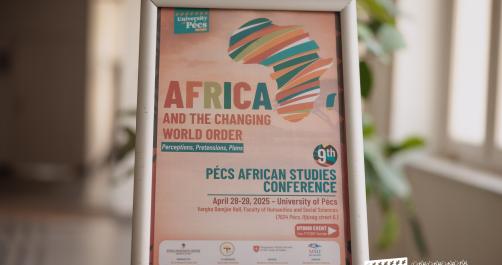
Assessing the State of Human Rights Across African Nations
Since the 9th Pécs African Studies Conference, scholars have highlighted that the situation of fundamental rights remains fragile in many African states. The United Nations definition – rights inherent to all humans regardless of race, religion, or nationality – offers a benchmark, but the reality on the ground often falls short of this ideal.
Key Human Rights Violations in the Region
Reports from Ethiopia’s Tigray region reveal mass killings and sexual violence that have led to an estimated 600,000 deaths and 5.5 million people requiring humanitarian aid. Amnesty International has documented systematic abuses that are frequently obscured by ongoing conflict. In South Sudan, continuous civil unrest since 2013 has left two failed peace agreements in 2015 and 2018, underscoring that peace is a prerequisite for rights to be respected.
Climate Change and the Erosion of Basic Needs
As researchers note, climate‑related disasters in Madagascar are increasingly threatening the rights to food, water, education, and health. Droughts, floods, and cyclones weaken infrastructure, pushing communities toward humanitarian crises that are hard to address swiftly and sustainably.
How International Diplomacy Shapes Human Rights Outcomes
The conference introduced a nuanced view of human rights diplomacy: it is not a monolithic practice but a tool that can both defend and advance national interests. The European Union’s approach illustrates this duality. While the EU claims to protect human rights, it also sometimes prioritizes strategic alliances, especially with rising powers like China, whose diplomatic engagements in Africa are often unconditional.
When Economic Interests Override Human Rights Clauses
One of the participants emphasized that “human rights clauses” tend to be ignored when heavy economic incentives are involved. In practice, this means that procurement contracts, investment incentives, or trade agreements can be secured without a thorough application of fundamental rights, putting affected populations at further risk.
The Role of Conditional Aid and Its Limitations
Despite substantial financial packages – the EU’s €500 million for South Sudan, for example – the distribution of aid remains opaque. The challenge lies in ensuring that assistance reaches those who need it most rather than being absorbed by intermediaries or used as leverage in diplomatic negotiations.
Strategic Approaches for Sustainable Human Rights Advocacy
Insights from the conference point toward a future that requires a new diplomatic language. Instead of top‑down mandates, meaningful human rights protection must involve local communities, civil society, and all stakeholders. This inclusive strategy ensures that obligations are not merely cited but actually enforced.
Building Local Capacity for Monitoring and Reporting
Investing in independent local media and legal frameworks can provide transparent mechanisms for documenting abuses. When communities have the tools to monitor violations, external actors can rely on accurate data to adjust policy and intervene appropriately.
Linking Humanitarian Interventions to Long‑Term Peacebuilding
Short‑term “firefighting” responses, as observed in the DRC, must be complemented by ongoing support for conflict resolution, governance reforms, and economic development. Only a coordinated approach can reduce the likelihood of recurring crises and protect human rights in the long run.
Practical Implications for Policy Professionals and Academics
For practitioners, the conference underscores the importance of interdisciplinary collaboration. Public‑policy specialists, environmental scientists, and human‑rights lawyers need to work together when designing interventions. For scholars, the findings present fresh research opportunities, particularly in comparative studies of diplomatic strategies and their effects on human‑rights outcomes.
Case Study: Integration of Climate Policy and Human Rights in West Africa
Organizations in West Africa demonstrate a growing awareness of how climate‑related migration can lead to human‑rights abuses. By coupling climate‑adaptation projects with policies that ensure refugee protection, these entities showcase a model for addressing the intersection of environmental change and fundamental rights.
Future Research Directions
- Analyzing the influence of multinational corporations on human‑rights practices in mining regions.
- Evaluating the effectiveness of digital monitoring platforms in reporting violations.
- Comparative studies of EU and China’s engagement strategies across African countries.
Next Steps for Stakeholders
Engagement must be based on mutual respect and evidence‑based action. Governments should adopt robust oversight mechanisms, and NGOs should cultivate local partnerships. International organizations, in turn, must ensure that aid is evidence‑driven, not geopolitically motivated.
How to Get Involved
Both policy-makers and scholars can contribute to progress:
- Apply to the University of Pécs’s International Studies programme and gain access to interdisciplinary research hubs.
- Download our comprehensive guide on African human‑rights challenges for a deeper understanding of case studies.
- Schedule a free consultation with our EU‑policy experts to explore how lobbying efforts can influence diplomatic outcomes.
- Join our blog series for updates and expert commentary.
Continuous dialogue and evidence‑based policy are essential for closing the gap between the right to life, liberty, and security and their actual protection on the ground. By aligning international cooperation with genuine respect for human rights, stakeholders can move toward a more just and stable Africa.

